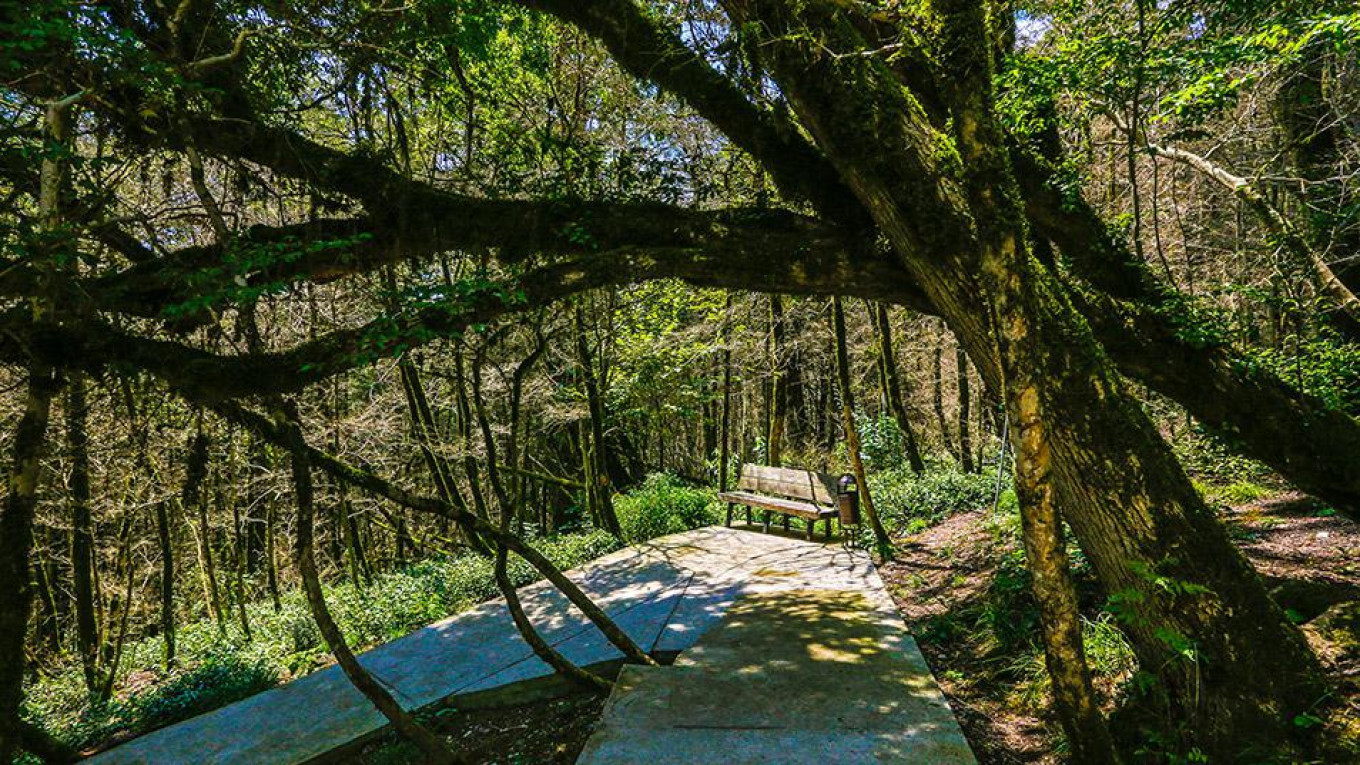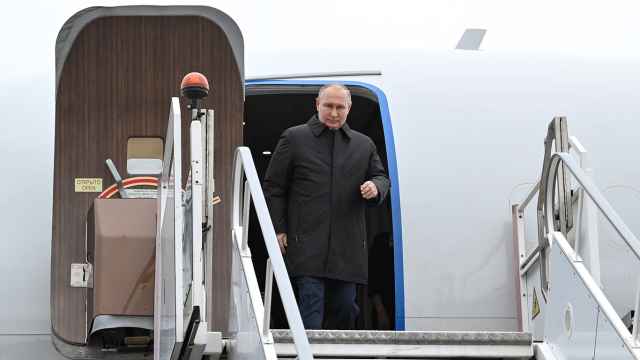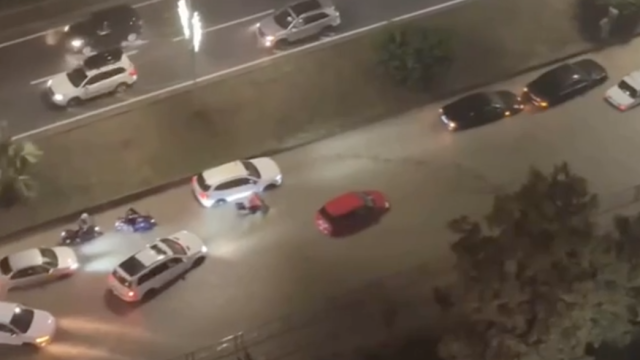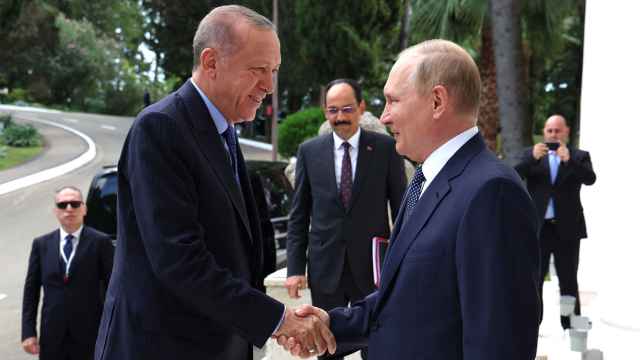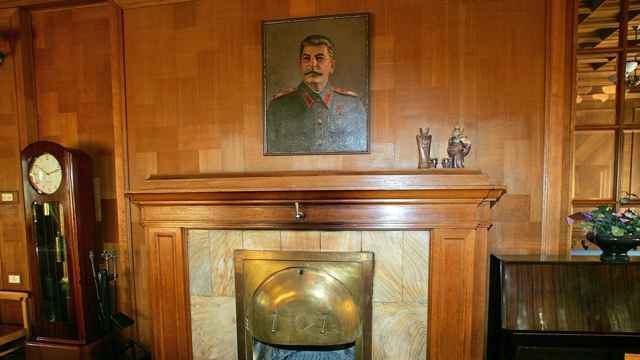Yew and Boxwood Natural Park
Located in an area of Sochi called Khosta, Yew and Boxwood National Park is easily reached either by bus and then a 20-minute walk up to the entrance, or by taxi. It’s a unique and ancient forest that has existed since before the Ice Age. There are several routes that you can take once inside the park. The short route takes less than an hour (2 kilometers) and has some great observation points, while the longer one (5 kilometers) takes you to the ruins of a fortress built around the 11th or 12th century, some caves and a roaring mountain stream. It’s best to do both routes to really appreciate the park.
Open: daily from 9 a.m. to 6 p.m.
Tickets: from 300 rubles
Ulitsa Samshitovaya, Khosta kgpbz.ru/node/12
Lenin Mosaic
In addition to several traditional Lenin statues, Sochi also boasts an 8-meter-high mosaic portrait of the leader of the proletariat. Located on Sochi’s river embankment right next to Riviera Park, it was installed in 1980 to celebrate Lenin’s 110th birthday.
Open: 24/7
Ulitsa Yegorova by the turn to Rivyersky Pereulok
Skypark AJ Hackett Sochi
In 2014, New Zealand traveler and extreme sportsman Alan Hackett decided to build his signature extreme entertainment park in Sochi (similar parks exist in Australia, Germany, France, Singapore and China). The main attraction is the Skybridge — a 439-meter-long walking bridge over the Akhshtyskoye Canyon, which provides breathtaking views of the Mzymta River Valley and the Caucasus mountains. Other highlights include bungee jumping (69 or 207 meters), the highest swings in the world, as well as a rope park and climbing wall.
Open: daily from 10 a.m. to 5 p.m.
Ulitsa Krasnofl otskaya, Kazachy Brod Village, Adler District ajhackett.com
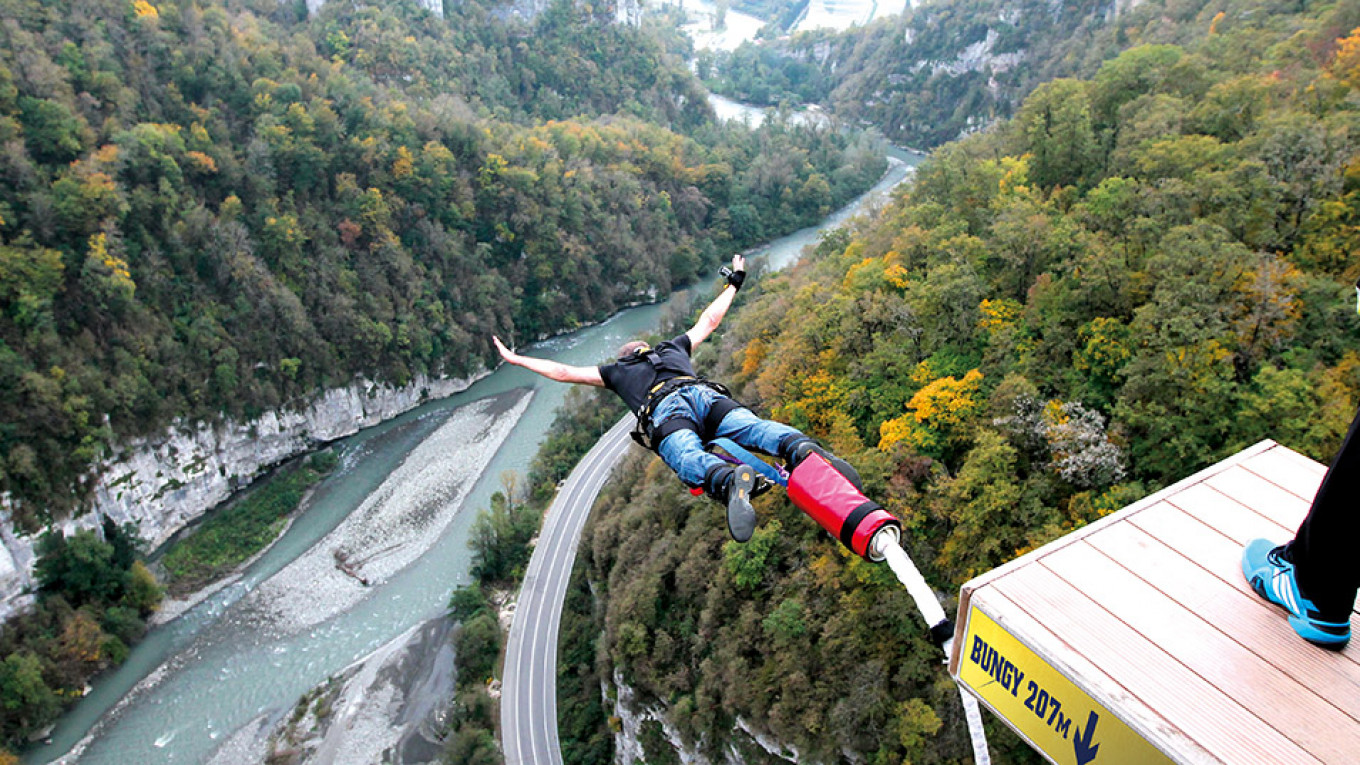
Ordzhonikidze Sanatorium
Sochi is famous for its crumbling Soviet-era sanatoria; one of the most notable is the Ordzhonikidze. It is a real Soviet “people’s palace,” with multiple buildings done in Stalin’s “empire” style, as well as fountains and a large park with terraces on several levels. The name is no accident — the sanatorium was actually founded by Sergo Ordzhonikidze, a Bolshevik and Stalin’s close associate, who picked the location for the sanatorium himself in 1934 and welcomed the first visitors three years later. It had no lack of celebrity guests: Yury Gagarin, the first man in space, swam at the swimming pool here. Today the sanatorium has fallen into disrepair: paint is peeling off and plants are slowly crawling up the buildings. Be ready to meet wedding parties or just people posing for photo shoots among the ruins.
Open: 24/7
Kurortny Prospekt, 96
Southern Cultures Park
Located in the Adler district, Southern Cultures Park is considered part of Sochi’s Arboretum. The park was first planted in 1911, on 11 hectares of land that belonged to General Daniil Drachevsky. The park was designed by landscape architect Arnold Regel, who created a whole system of ponds with islets and bridges. Today it boasts a eucalyptus grove and several types of palm trees.
Open: daily from 9 a.m. to 7 p.m.
Tickets: from 250 rubles
Nagorny Tupik, 13. Adler District dendrariy.com/park-yuzhnye-kultury
Winter and Summer Theaters
Located less than a 10-minute-walk from one another are the winter and summer theaters. The Winter Theater is another architectural landmark built in Stalin’s empire style. The theater is surrounded by 88 columns and decorated with sculptures by the famous Vera Mukhina, best known for the “Worker and Kolkhoz Woman” monument at VDNKh in Moscow. The open-air Summer Theater is another popular performance venue that hosts symphonic orchestras, dance collectives and jazz bands.
Winter Theater: Teatralnaya Ulitsa, 2 skfo.online
Summer Theater: Chernomorskaya Ulitsa, 11 letniy-teatr.ru
A Message from The Moscow Times:
Dear readers,
We are facing unprecedented challenges. Russia's Prosecutor General's Office has designated The Moscow Times as an "undesirable" organization, criminalizing our work and putting our staff at risk of prosecution. This follows our earlier unjust labeling as a "foreign agent."
These actions are direct attempts to silence independent journalism in Russia. The authorities claim our work "discredits the decisions of the Russian leadership." We see things differently: we strive to provide accurate, unbiased reporting on Russia.
We, the journalists of The Moscow Times, refuse to be silenced. But to continue our work, we need your help.
Your support, no matter how small, makes a world of difference. If you can, please support us monthly starting from just $2. It's quick to set up, and every contribution makes a significant impact.
By supporting The Moscow Times, you're defending open, independent journalism in the face of repression. Thank you for standing with us.
Remind me later.


